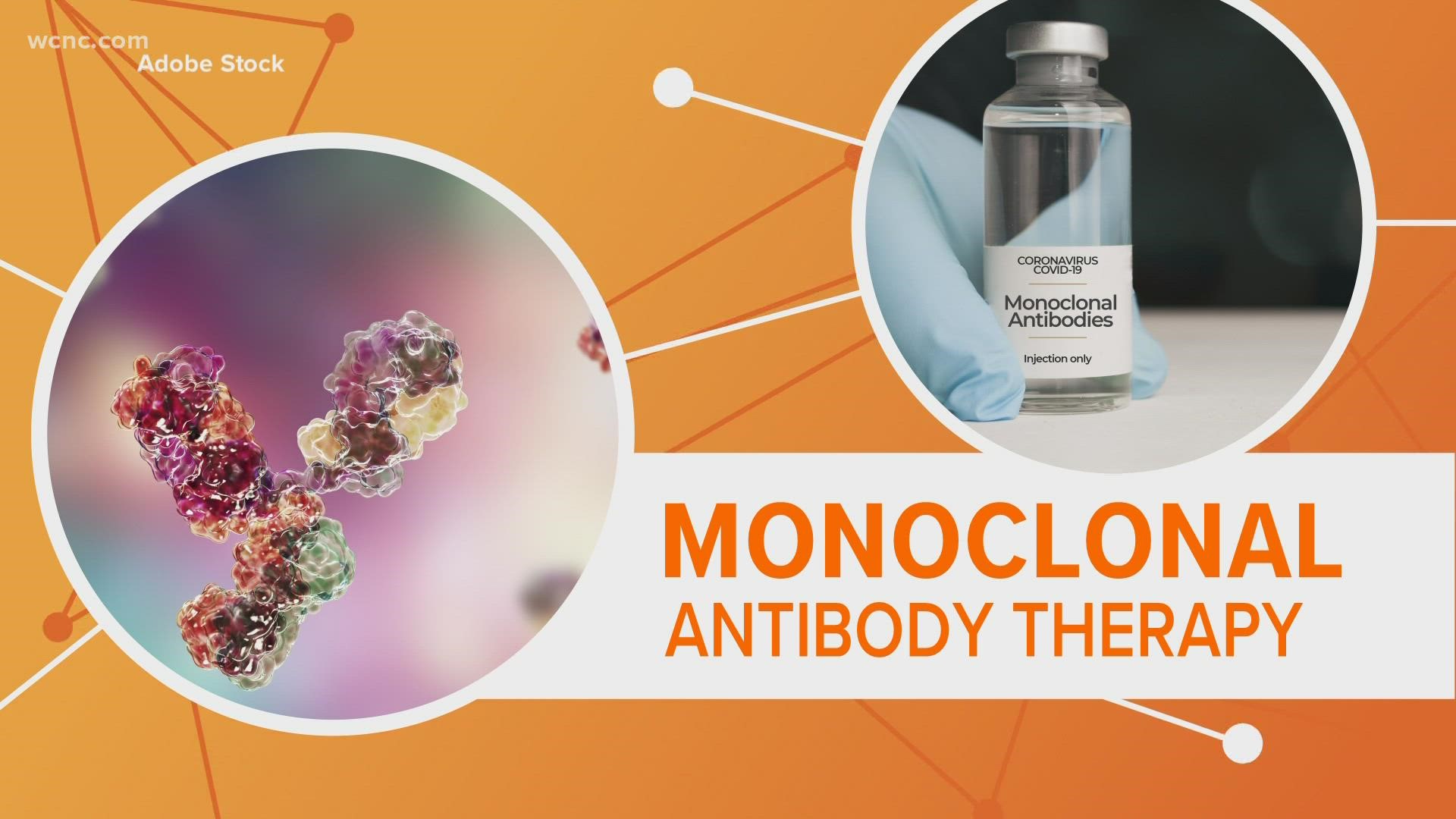CHARLOTTE, N.C. — At the beginning of the pandemic, doctors had no specific treatment for COVID-19, but now, some patients are seeing real success with something called monoclonal antibody therapy.
There has been a lot of buzz about monoclonal antibody therapy recently. So what do all those words mean? And how is it helping?
Let's connect the dots.
Your body naturally makes antibodies in a response to an infection. Monoclonal antibodies are the same thing, except they're made in a lab. And they are specially designed to target coronavirus.
The monoclonal antibodies attack the virus' spike proteins and give your immune system time to launch its own response.
Doctors say that helps prevent the worst symptoms of COVID-19 and prevent hospitalizations.
Right now, monoclonal antibody therapy is only recommended for high-risk COVID-19 patients, like people with pre-existing conditions or those over 65.
It's most effective when given in the first few days after a COVID-19 diagnosis.
Doctors say it is not a replacement for the vaccine, and the best way to prevent COVID-19 is still rolling up your sleeve.
Wake Up Charlotte To Go is a daily news and weather podcast you can listen to so you can start your day with the team at Wake Up Charlotte.
SUBSCRIBE: Apple Podcasts || Spotify || Stitcher || TuneIn || Google Podcasts
All of WCNC Charlotte's podcasts are free and available for both streaming and download. You can listen now on Android, iPhone, Amazon, and other internet-connected devices. Join us from North Carolina, South Carolina, or on the go anywhere.

